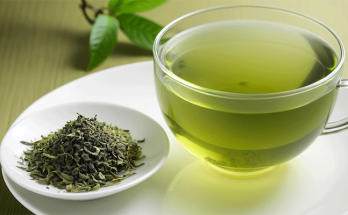
As winter’s chill settles in, individuals grappling with arthritis often find themselves facing increased joint pain. The cold weather has a tangible effect on our bodies, especially on joints, the flexible connections between bones that enable movement. Arthritis, characterized by joint inflammation, tends to intensify during winter, leading to discomfort, stiffness, and restricted mobility.
Science Behind Winter-Related Joint Pain: The drop in temperature during winter brings about physical changes that contribute to joint discomfort. Cold weather causes muscles and tendons to contract, resulting in heightened stiffness. The synovial fluid, a lubricating substance in the joints, thickens in colder temperatures, making joint movement less smooth.


Additionally, the body’s response to cold diverts blood away from extremities, impacting joint inflammation and increasing pain for arthritis sufferers.




Practical Tips for Managing Winter-Related Joint Discomfort
Exercise for Flexibility: Regular, low-impact exercises like walking, swimming, or yoga can enhance joint flexibility. Warm-up exercises, such as gentle stretches, become essential to combat stiffness.
Stay Warm: Layering clothing, using heated blankets, warm baths, or applying hot packs to affected joints can provide insulation against the cold and alleviate discomfort.
Balanced Diet for Joint Health: Foods rich in omega-3 fatty acids, like fish and nuts, possess anti-inflammatory properties. Including fruits, vegetables, and whole grains in the diet supports overall joint health.
Hydration Matters: Adequate water intake helps maintain joint lubrication, reducing friction and minimizing discomfort. Warm beverages, such as herbal teas, contribute to hydration and warmth.
Consulting Healthcare Professionals
While lifestyle changes are crucial, consulting with a healthcare professional is equally important. Healthcare providers can offer personalized advice, recommend medications, and tailor treatment plans to individual needs.
Q1: Why do joints and arthritis pain seem worse in winter?
A: Cold weather makes joints feel stiffer because the fluid inside thickens, and muscles tighten up. Also, less blood flow to joints in winter can make inflammation and pain worse for people with arthritis.
Q2: How can exercise help arthritis pain in winter?
A: Doing gentle exercises regularly, like walking or yoga, makes joints more flexible and less stiff. It’s like warming up your body to help with joint discomfort.
Q3: Why is staying warm important for winter joint pain?
A: Keeping warm helps protect joints from the cold. Wearing layers, using warm blankets, or putting hot packs on joints can make a big difference in feeling better.
Q4: How does food help with arthritis pain in winter?
A: Eating healthy foods with omega-3 fatty acids, found in fish and nuts, can reduce joint pain. Fruits, veggies, and whole grains also give important nutrients for overall joint health.
Q5: Why is drinking enough water important for joints in winter?
A: Water helps keep joints lubricated, which reduces friction and eases discomfort. Drinking warm beverages, like herbal teas, adds extra hydration and warmth during the chilly months.
Q6: Should people with arthritis talk to doctors about their pain in winter?
A: Yes, it’s important to talk to doctors. They can give personalized advice, suggest medicines, and make a plan to help manage arthritis pain better.
Q7: Are there easy things to do from the article to feel better in winter?
A: Yes, the article suggests simple things like regular exercise, staying warm, eating well, and talking to a doctor. These tips can help manage and ease winter-related joint discomfort.
Q8: Can winter make arthritis happen, or only make it worse?
A: Winter itself doesn’t cause arthritis, but it can make symptoms worse for those who already have it. The cold and dampness can make joints hurt more.
Q9: Are there exercises to avoid if you have arthritis in winter?
A: It’s good to avoid exercises that make joints work too hard. Stick to gentler exercises like walking or yoga if you have arthritis, especially in winter.
Q10: How can you make your home better for arthritis in winter?
A: Simple changes like using rugs, keeping your home warm, and adding handrails can make it more comfortable for people with arthritis during the cold months.
Q11: Can over-the-counter pills help with arthritis pain in winter?
A: Yes, some pills you can buy without a prescription may help with pain. But always check with a doctor before you start taking any medicine.
Q12: Is there a special diet for arthritis in winter, or just eat healthy?
A: Eating healthy is the main idea. Focus on foods that fight inflammation. If you want a specific plan, ask a doctor or a nutritionist.
Q13: Are there other things, besides medicine, that help arthritis pain in winter?
A: Some people find relief through things like acupuncture, massage, or physical therapy. But talk to a doctor first to make sure it’s safe for you.
Q14: Does weight matter for arthritis in winter?
A: Yes, keeping a healthy weight is good for your joints. It can make arthritis pain less because your joints don’t have to work as hard. Think about it, especially in winter when you might move less.
Understanding how winter affects joints and arthritis pain empowers individuals to proactively manage discomfort. By incorporating exercise, staying warm, maintaining a balanced diet, and seeking professional guidance, those with arthritis can embrace winter with greater comfort and improved well-being. These strategies enable individuals to navigate the colder months with resilience and a renewed sense of control over their joint health.









